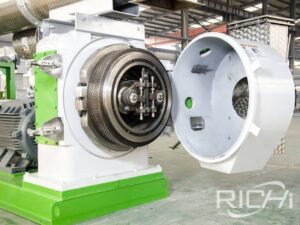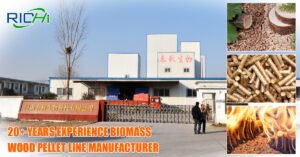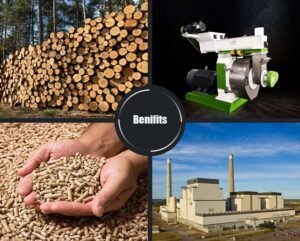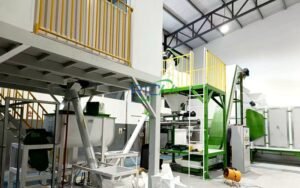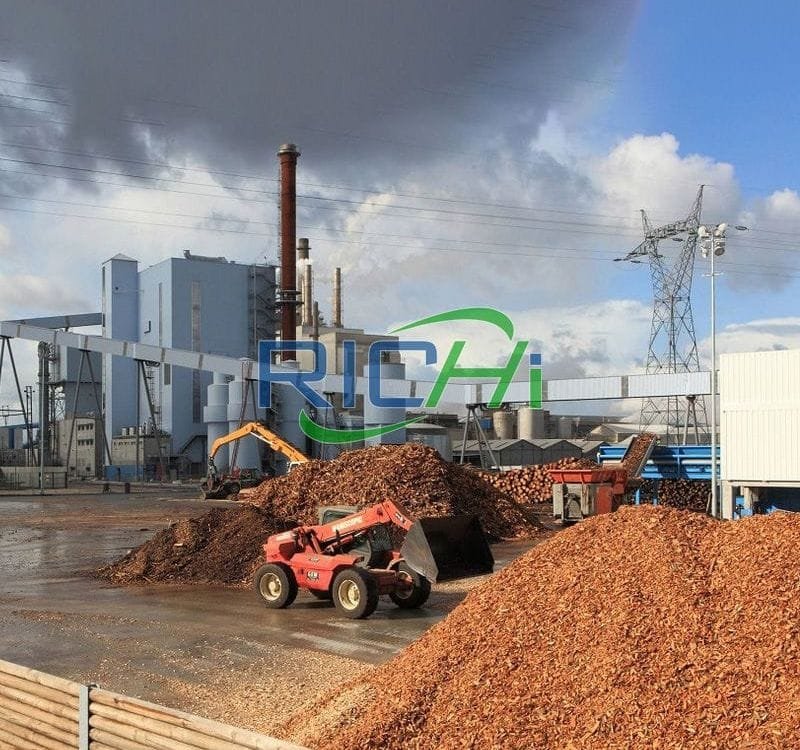
The global transition toward renewable energy has led to a substantial increase in the demand for wood pellet production lines. A medium-scale investment, typically characterized by a production capacity of 2-3 tons per hour (t/h), necessitates considerable technical support for installation, operation, and maintenance. The nature and level of this technical support, particularly in relation to environmental protection standards, can differ greatly from country to country. This article examines the variations in technical support for wood pellet production lines based on environmental protection requirements across various nations.
Key Factors Affecting Environmental Protection Standards
- Local Environmental Regulations
Countries with strict environmental regulations demand higher levels of technical support to ensure compliance. These regulations often encompass emissions control, waste management, and energy efficiency standards. - Government and Industry Support
Government initiatives and industry organizations play a crucial role in providing technical training and support for adhering to environmental regulations. Policies that promote renewable energy typically include measures for environmental protection. - Infrastructure and Technology
Well-developed infrastructure and advanced technology enhance the effectiveness of environmental protection measures. Access to modern equipment and technology is vital for meeting established environmental standards. - Market Demand for Sustainable Products
Consumer interest in eco-friendly products can drive the establishment of higher environmental protection standards in production processes. Countries with strong market demand for sustainable products usually enforce more stringent environmental regulations.
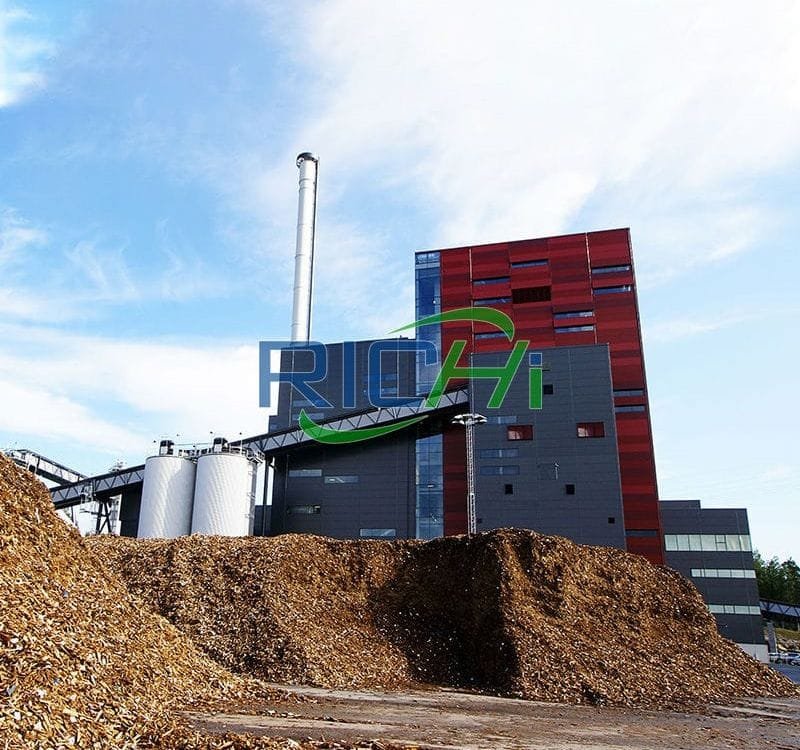
Countries Prioritizing Environmental Protection in Technical Support
- Germany
Environmental Protection Level: High- Key Factors: Strict environmental regulations, robust government support, and advanced infrastructure.
- Market Insight: Germany boasts extensive technical expertise and support networks due to its longstanding commitment to renewable energy. The country implements stringent standards for emissions control and waste management, with numerous equipment manufacturers ensuring quick access to machinery and parts.
- Sweden
Environmental Protection Level: High- Key Factors: Strong emphasis on sustainability, advanced technology, and supportive government policies.
- Market Insight: Known for its dedication to renewable energy and environmental protection, Sweden maintains rigorous standards for emissions and waste management. Technical support includes comprehensive training on environmental protection practices and access to cutting-edge technology.
- Canada
Environmental Protection Level: Moderate to High- Key Factors: Advanced technology, supportive government policies, and a growing market for sustainable products.
- Market Insight: Canada benefits from robust technical support, particularly due to its developed biomass industries. The country enforces strict regulations regarding emissions control, complemented by training on related technologies and practices.
- United States
Environmental Protection Level: Moderate to High- Key Factors: Advanced technology, skilled workforce, and supportive government policies.
- Market Insight: The U.S. has strong technical support within its biomass industries, particularly in states with stringent regulations like California. Technical assistance includes extensive training in environmental protection measures and access to advanced emissions control technologies.
- China
Environmental Protection Level: Growing- Key Factors: Rapid industrialization, increasing government support, and improving infrastructure.
- Market Insight: China is enhancing its technical support systems in response to its expanding renewable energy sectors, with a rising governmental focus on environmental protection. Technical training on emissions control and waste management is becoming more prevalent.
- India
Environmental Protection Level: Moderate- Key Factors: Growing focus on renewable energy, supportive government policies, and improving infrastructure.
- Market Insight: India is developing its technical support frameworks with government backing, emphasizing environmental protection as infrastructure improves. Technical support involves training on compliance with emerging regulations and access to modern technology.
Related post: wood pellet processing plant
Detailed Examination of Environmental Protection in Technical Support
- Germany
- Expertise: High local expertise due to a well-established biomass industry and strong government initiatives.
- Equipment Access: Easy access to machinery and spare parts from local manufacturers.
- Government Support: Strong incentives and policies promoting renewable energy and environmental protection.
- Infrastructure: Well-developed logistics networks ensure timely equipment delivery.
- Sweden
- Expertise: Extensive technical knowledge and support networks from a long history in biomass processing.
- Equipment Access: Access to cutting-edge emissions control and waste management technologies.
- Government Support: Comprehensive training programs and environmental compliance support.
- Infrastructure: Advanced infrastructure supports high environmental protection standards.
- Canada
- Expertise: Strong technical support in regions with a high concentration of biomass facilities.
- Equipment Access: Access to advanced emissions control and waste management technology.
- Government Support: Supportive policies and training programs for compliance with environmental standards.
- Infrastructure: Well-developed logistics networks facilitate adherence to environmental regulations.
- United States
- Expertise: Strong technical support from a developed biomass industry focused on renewable energy.
- Equipment Access: Access to advanced emissions control technologies.
- Government Support: Comprehensive training programs and environmental compliance support.
- Infrastructure: Advanced infrastructure supports high standards of environmental protection.
- China
- Expertise: Growing technical support driven by government initiatives and local equipment manufacturing.
- Equipment Access: Access to modern emissions control and waste management technologies.
- Government Support: Increasing focus on environmental protection and technical training support.
- Infrastructure: Improving logistics networks enhance compliance with environmental standards.
- India
- Expertise: Developing technical support systems with governmental backing.
- Equipment Access: Access to modern technology for emissions control and waste management.
- Government Support: Emerging emphasis on environmental protection and support for training.
- Infrastructure: Improving logistics networks facilitate compliance with environmental standards.
Conclusion
The technical support for a 2-3t/h wood pellet production line varies considerably across different countries, influenced by local expertise, equipment availability, government and industry backing, infrastructure, and regulatory frameworks. Nations such as Germany, Sweden, Canada, and the United States generally provide high levels of technical support with a strong emphasis on environmental protection due to their established biomass industries, advanced technology, and stringent regulations. Meanwhile, China and India are rapidly advancing their technical support systems in response to industrial growth and government initiatives, with an increasing focus on environmental compliance.
Investors and operators should carefully evaluate these factors when planning to establish a wood pellet production line. By understanding the specific technical support conditions and leveraging local advantages, businesses can optimize their investments and achieve long-term success in the dynamic global biomass pellet market while ensuring compliance with environmental protection standards.
